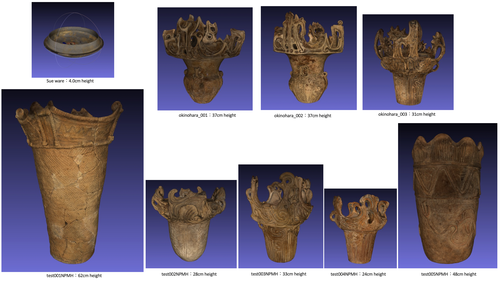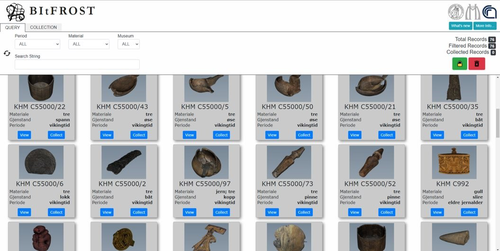
LIEN-TALKS Alphaeus
- Department of Archaeology, University of York, Historic England and Archaeology Data Service, York, United Kingdom
- Computational archaeology
- recommender
Recommendations: 0
Reviews: 2
Reviews: 2

Analysis of Sensory Impression Factor Structures of Jomon Potteries through a Semantic Differential Method Viewing 3D Models on MR equipment
Do you like this pottery? Reveal public perceptions of archaeological artefacts with semantic differential method on virtual 3D models
Recommended by Mathias Bellat based on reviews by Alphaeus Lien-Talks and Lizzie ScholtusIt might seem complex to connect archaeological artefacts with modern considerations. Indeed, nowadays, museum visitors project their own expectations and cultural habits on ancient society objects. The spatial perceptions of the objects therefore an anthropological and psycological subject (Bruner, 2023).
Fujita and its colleagues present in this paper an innovative approach to pottery ethical perception with a Quantitative Sensory Impression Factor Structure and Semantic Differential Method. After digitalising the potteries into a 3D model, the authors are testing participant perception of the virtual potteries via an augmented reality lens. The survey results were computed into factor analysis, highlighting the predominance of one or several adjectives for describing specific pottery typologies.
Overall, this paper contributes to analysing human abstraction over objects with an innovative approach to the Semantic Differential Method (Osgood et al., 1957).
Museography adaptations of these observations would undoubtedly help create more interactive exhibitions and an embedded environment where visitors are not only the subject of the visit but truly actors of the scientific construction by helping understand human behaviour on cultural objects.
References
Haruhiro Fujita, Toru Miyao, Hironori Imai, Hiroyuki Sasaki, Yew Kwang Hooi and Simon Kaner (2025) Analysis of Sensory Impression Factor Structures of Jomon Potteries through a Semantic Differential Method Viewing 3D Models on MR equipment. Zenodo, ver.3 peer-reviewed and recommended by PCI Archaeology https://doi.org/10.5281/zenodo.14788676
E. Bruner (2023). Cognitive Archaeology, Body Cognition, and the Evolution of Visuospatial Perception. Elsevier Science & Technology, San Diego, United States
Charles E. Osgood, George J. Succi and Percy H. Tannenbaum (1957). The measurement of meaning, Urbana, vol. IL, University of Illinois Press.

Experiences from the BItFROST Project: Developing a 3D repository at the Museum of Cultural History
Keeping 3D data usable - the BitFROST project
Recommended by Kristin Kruse based on reviews by Alphaeus Lien-Talks and 1 anonymous reviewer3D technologies are now standard methods for documenting artefacts and archaeological sites. In order to make the resulting digital cultural heritage accessible to current and future generations, a long-term approach to data management is required, with continuous adjustments and consideration of the changing needs of the users. This is the conclusion of the authors Bonelli and colleagues [1], who present a project in which such a holistic approach was applied in practice.
Introduced is the BitFROST platform (Bridging Research Across Heritage Studies) of the Museum of Cultural History at the University of Oslo. This self-hosted platform has been in existence since 2021 and is dedicated to optimising the long-term storage and reuse of 3D data. The project arose from the museum's legal obligations and long tradition of keeping archaeological information usable. The platform was developed with explicit consideration of user feedback to fulfil the different expectations and needs at an early stage. The BitFROST project is therefore a wonderful illustration of how change management should be practised.
The article repeatedly provides brief insights into the functionalities and best practices of the platform but is particularly impressive due to its in-depth contextualisation within the state-of-the-art of digital data management. The authors show a high level of expertise and provide numerous references to further literature. The results of the user feedback are also extensively analysed, and it is explained how, for example, individual technical competence or institutional awareness lead to a great diversity of needs and how this can be counteracted with cooperation, ongoing training and continuous development (as mentioned above).
I recommend this article as a very interesting case study and a well-researched white paper on complex digital data management.
References
Bonelli L., Pantos G. A.s, Indgjerd H., Uleberg E. (2024) Experiences from the BItFROST Project. Zenodo, ver.5 peer-reviewed and recommended by PCI Archaeology https://doi.org/10.5281/zenodo.8310062